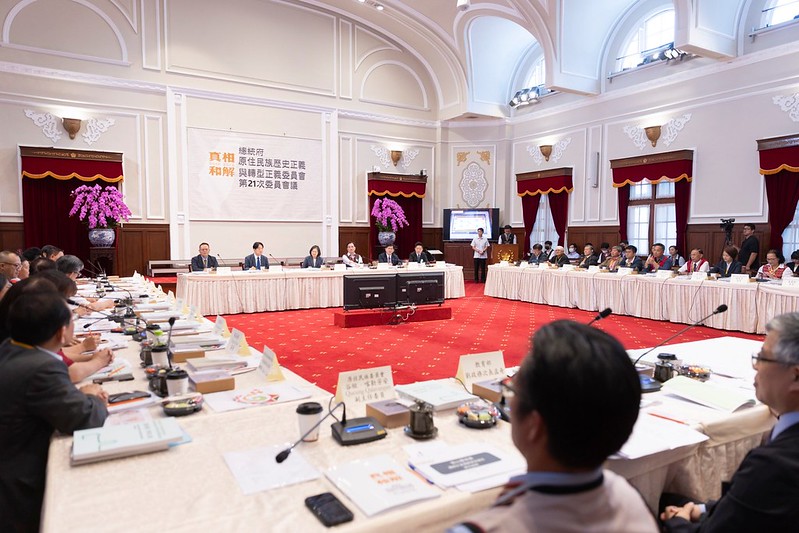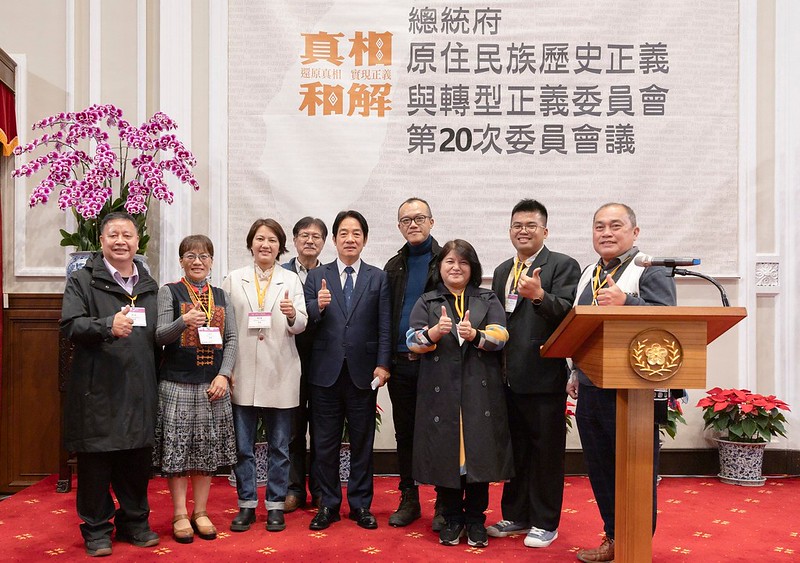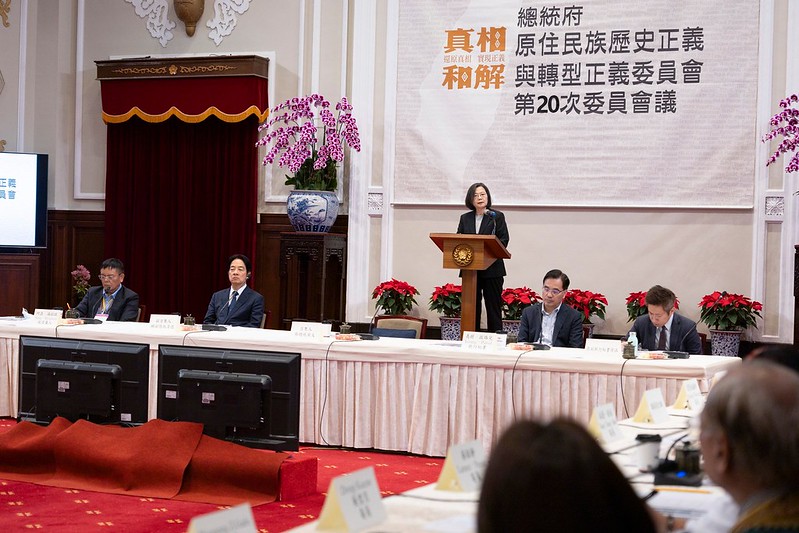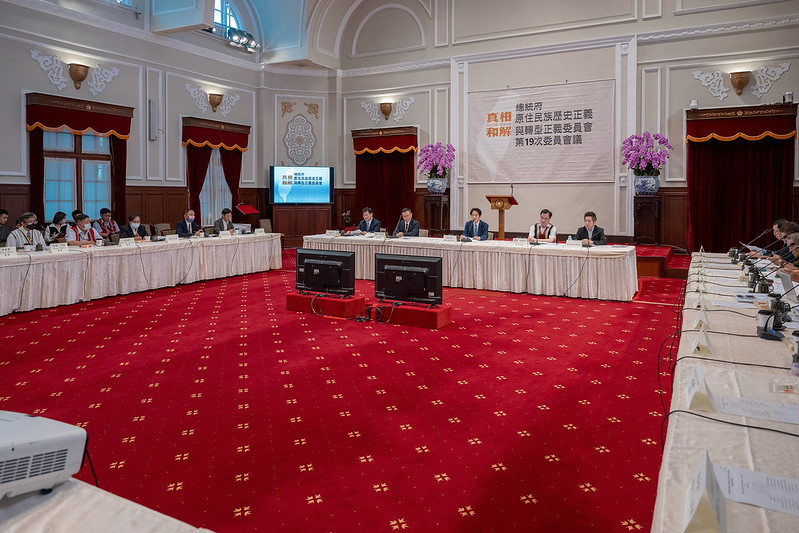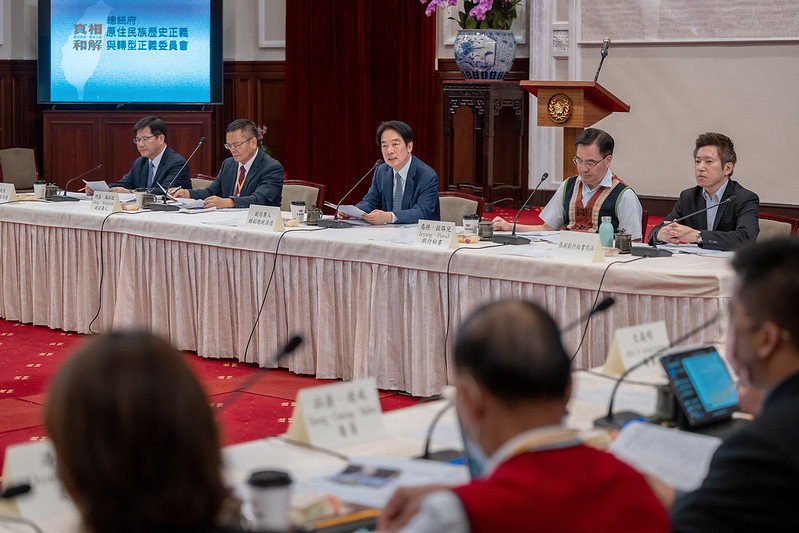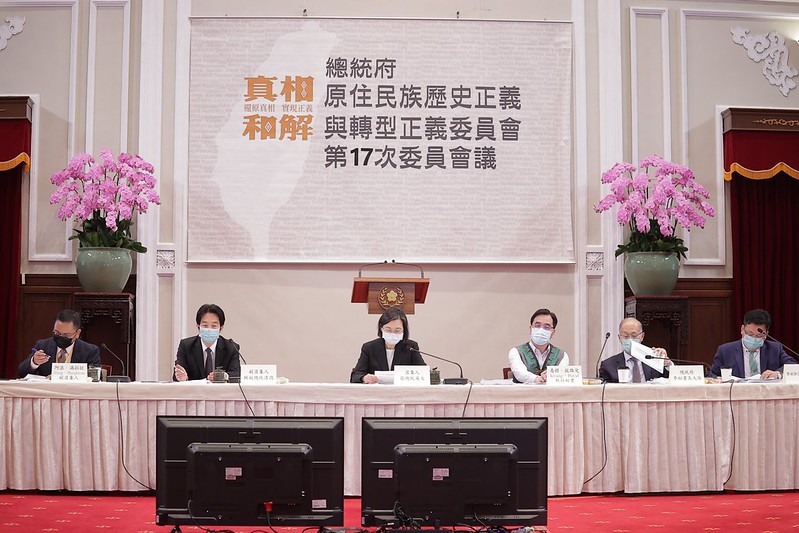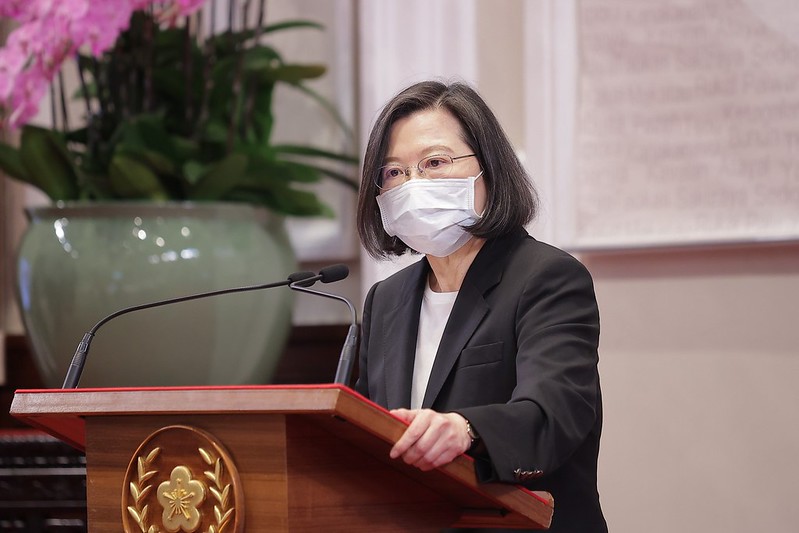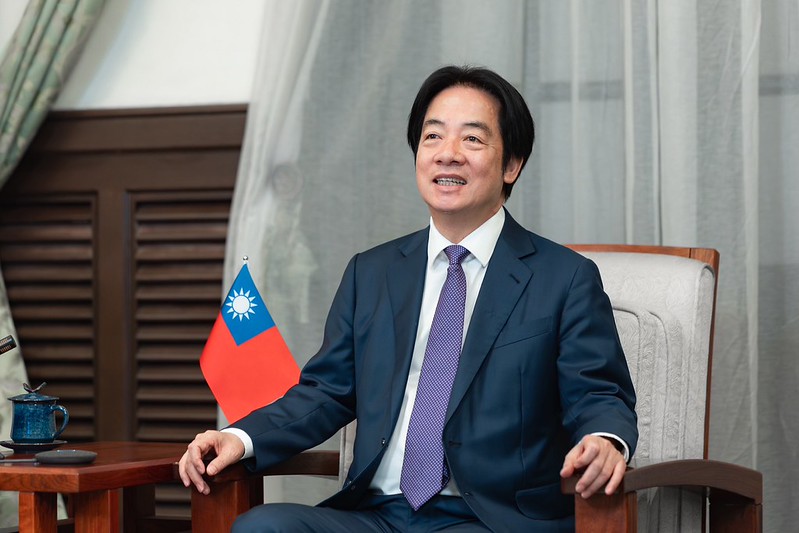News & activities
 News releases
News releases
On March 3, President Tsai Ing-wen convened and presided over the 17th meeting of the Presidential Office Indigenous Historical Justice and Transitional Justice Committee, accompanied by Vice President Lai Ching-te.
In her opening remarks, President Tsai stated that this was the committee's first meeting of the year, where they would continue to discuss important issues regarding indigenous peoples. The president also mentioned that everyone has been paying close attention to progress in the promotion of self-government for indigenous peoples, an issue that the committee convened a special meeting to discuss two months ago.
President Tsai said that self-governance had long been a core goal of their forbears in the indigenous peoples movement. The president stated that thanks to the joint efforts of the government and indigenous peoples in recent years, organizations formed by various indigenous groups have been participating in the co-management of mountain forest resources, the development of education programs for indigenous peoples, the revitalization of indigenous languages, as well as elder care and industrial development, all of which are concrete proof that indigenous peoples are making progress in substantive self-governance.
President Tsai said that the government has sent legislation promoting self-governance for indigenous peoples to the Legislative Yuan for deliberation on five separate occasions, but it has yet to pass. The president added that the problem clearly lies not in the legislation itself, but in forging a consensus about such self-governance, so we should now focus on that task.
President Tsai noted that she issued a directive at the very first committee meeting: the fundamental elements of indigenous self-government include a clearly defined spatial scope, defined self-government powers, and fixed financial resources; the organizational structure of indigenous governments must be determined through equal-status and substantive negotiations between the indigenous peoples and the national government.
President Tsai emphasized that in addition to continuing to promote self-governance legislation, the Council of Indigenous Peoples has also launched a plan which will finance indigenous peoples' representatives to the committee to bring together indigenous peoples and draft a self-governance blueprint. The president stated that after a clear consensus is reached, we will follow up on the results of their discussions by implementing policies aimed at self-government for indigenous peoples.
President Tsai also expressed hope that based on these foundations, after today's meeting committee members can further exchange ideas, so that discussions about self-government for indigenous peoples can take the next step forward.
The president went on to state that during today's meeting, they will hear the 2021 annual work reports from subcommittees, as well as a report on land cases of concern to committee members. Although the agenda is packed, President Tsai said that their work has achieved solid results, their direction is clear, and that the committee will continue its efforts.
